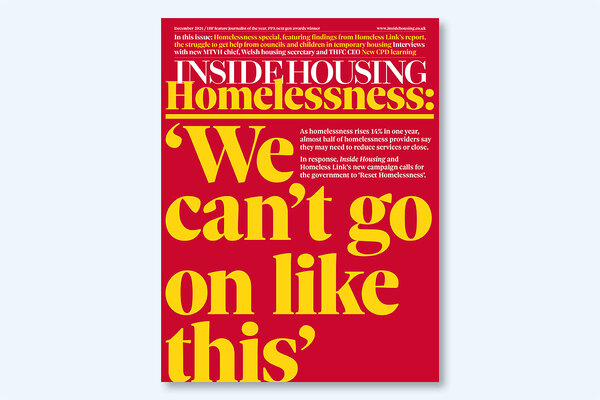You are viewing 1 of your 1 free articles
Concern over plans to withhold Right to Buy payments
Ministers are set to insist on withholding 30% of compensation payment for Right to Buy discounts until replacement homes are started, despite strong criticism from the housing association sector.
Associations, in negotiations with ministers on the details of the voluntary scheme, have been pushing against plans for the government to pay 70% of the compensation on sale and the remainder when a replacement home is started. However this mechanism for paying compensation was outlined in a National Housing Federation (NHF) briefing to members last week, and it is understood ministers will not budge on this point as they want a lever to ensure replacement homes are built.
Although the NHF insists the deal with government is for full compensation even if homes are not replaced, the emerging split compensation plan is causing concern that associations might not in some instances be able to receive the full open market value of the homes they sell under the scheme.
One housing association chief executive, who preferred not to be named, said: “Conditional compensation is not what the NHF signed up for - many organisations, particularly smaller organisations, might find it impossible to fund replacements.”
Associations will be able to partner with another organisation to build a replacement and claim the remaining compensation. In “exceptional circumstances” if they cannot afford the replacement home they may instead be able to buy an existing property.
In numbers: RTB extension
1.3m
Tenants promised the Right to Buy in Conservative manifesto
10
Years living in social housing to be eligible under the pilot scheme
£103,900
Maximum Right to Buy discount for tenants in London. Outside it is £77,900
Gordon Perry, chief executive of Accent Housing who has sat on the NHF sounding board which develops the scheme, said some organisations may run into problems with charitable law which requires organisations to achieve full value for assets sold.
He said: “The boards with charitable objectives which require us to receive full consideration would have to look at the detail because it sounds to me like this may not be sufficient.
“The one-for-one replacement commitment was a national promise, not for individual associations to fulfil, and this is a shift away from that.”
Ian Graham, a partner at Trowers & Hamlins solicitors, said: “The association will need to consider whether the ‘guaranteed’ value it will receive renders it an appropriate transaction for the charity to undertake.”
Jonathan Higgs, chief executive of Raven Housing Trust, said: “The commitment from government is that each association will receive 100% of the value of their properties.”
The NHF briefing note also revealed housing associations will be required to check with government in advance of each sale to ensure enough compensation is available.
The discounts will be funded by the high-value asset levy on councils, which has not yet come into effect, meaning funding may be limited in the early days of the extension.
The NHF also this week advised its members they will be required to create local policies for exemptions and a scheme of portable discounts before the scheme launches.
A spokesperson for the Department for Communities and Local Government said it will announce a start date for the extension in due course.
NHF advice to members
Housing associations must produce individual policy statements on sales policy and portability, according to an NHF briefing last week.
For the sales policy it:
- Advises associations to think about legal restrictions on sales resulting from planning agreements (Section 106), loan agreements, stock transfer agreements and councils’ nomination agreements
- Says these restrictions may not prevent a sale, and suggests some could be renegotiated if they do
- Lists rural homes, supported housing and properties given as charitable donations as among others which may be exempt
- Suggests the policy should have a “presumption in favour of sale”
For the portability policy it:
- Says associations should outline in clear terms how the portability will work for tenants
- Advises associations to set out a clear rationale for what a “reasonable offer” of an alternative home is
- Tells landlords to outline clearly when the landlord has “discharged its duty”, meaning the tenant has effectively declined the Right to Buy
- Warns some associations may have “one property a year or not even that” to serve as an alternative home












